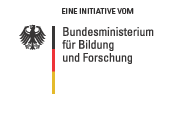Gitte Neubauer: Proteome pioneer
-
 <ic:message key='Bild vergrößern' />
<ic:message key='Bild vergrößern' />
- Gitte Neubauer ist studierte Biochemikerin und eine der Gründerinnen des Proteomik-Spezialisten Cellzome in Heidelberg. Quelle: Cellzome
26.01.2011 -
Gitte Neubauer is not one of those people who have a fear of the new. "There’s always something exciting to see when you walk through the door," she says. After finishing school in her birthplace of Coburg, she trained as a chemical-technical assistant and worked at the University of Heidelberg. Then things really took off. Her high school diploma in Mannheim was followed by work at GSK in the UK and biochemistry studies at Imperial College in London.During the interview she slips occasionally into English. The company was founded after just two years at the European Molecular Biology Laboratory (EMBL) in Heidelberg. And as if that were not enough, she has three children, one before founding Cellzome and two after, as well as one husband. It’s not hard to believe her when she says: "If it wasn’t always so exciting at Cellzome, I’d be long gone.“
It was a time when everything seemed possible. New technologies promised a fantastic future. Investors were queuing up to place their money in start-ups, and young talent didn’t have to wait for long to start their own companies. The Nineties ended with promise, and not just for internet pioneers in California, but also for molecular biologists in Heidelberg. In 1998, the researchers at the prestigious European Molecular Biology Laboratory (EMBL) received an unusual visitor. Not another colleague in a lab coat, but investment experts in suits come to discuss the work that was taking place on the site.
Moreover, how findings could be turned into revenue. At the time, Gitte Neubauer was 32 years old and a postdoc in the group led by Matthias Mann, who now works at the Max Planck Institute for Biochemistry. Two years ago, he and his group caused a stir when they were the first to identify the around 4400 different proteins in yeast. Today, Neubauer is Vice President of Research Operations at Cellzome, which was founded with seven other EMBL colleagues. More than 90 employees work at two locations in Heidelberg and Cambridge; in the last six years, various cooperations have brought in around 150 million US dollars.
Who's Who in the pharma industry
Cellzome had initially concentrated on mapping protein-protein interactions. Namely, if you understand how proteins interact in a cell, it can lead to completely new starting points for pharmaceutical development. In the meantime, Cellzome has established itself as one of the world's leading companies in the area of proteomics, thanks to a platform that enables chemical interactions with proteins to be studied directly in the cell lysate. In January 2002, just 18 months after opening its doors, Cellzome generated headlines also outside of the Neckar Valley with the first large-scale analysis of the full yeast proteome. This was featured as the cover story in Nature magazine, and the phones have barely stopped ringing since. The ‘Cellzome principle’ was born. "There was a new partnership after every major publication," says Neubauer.
| More on biotechnologie.de |
News: Global 1000-epigenome-consortium set for action People: Heinrich Leonhardt - Entschlüsselung des epigenetischen Codes |
The client list of the young company soon looked a who's who of the pharmaceutical industry. Today, these include Bayer, Novartis, and Johnson & Johnson. The biggest fish, however, was GlaxoSmithKline. Since 2008, the British company has been using two technology platforms developed by Cellzome to find drugs that influence kinases and epigenetic enzymes in cells. Cellzome also recently recruited a designated expert in preclinical development, Alan Watts. In Heidelberg, there is a conscious focus on the company’s strengths. "And they lie in pre-clinical research," says Neubauer. And in innovation. "I don’t see my role in the company as clinging to old, traditional values. That Cellzome has not relinquished its technological leadership since its founding is thanks in great part to the professional biochemist. "I introduced the technology to the company.“
The blessing of an early birth
Neubauer also ensures that the expectations of academic excellence at EMBL are not forgotten in the high-stakes world of corporate science. Recruitment is an international affair: current employees originate from eleven countries, and all communications – mails and meetings – are conducted in English. Good research alone is not enough, however. This was understood from the beginning at Cellzome, which is why management was handed over to professionals at an early stage. "This is probably why we’re still here today," says Neubauer.
Not only pragmatism but also the blessing of an early birth has allowed Cellzome to thrive. "The boom that prevailed at the time, this enormous euphoria, is hard to imagine today. We weren’t able to show anything, not a partnership, not a drug target, not a program, during our second round of financing in 2001. The investors simply believed in us and in our technology.” The most recent financing was in 2003. Since then, Cellzome has financed itself exclusively with profitable industry collaborations – highly unusual for the sector. Sometimes it pays to have faith.
Author: Christoph Mayerl




